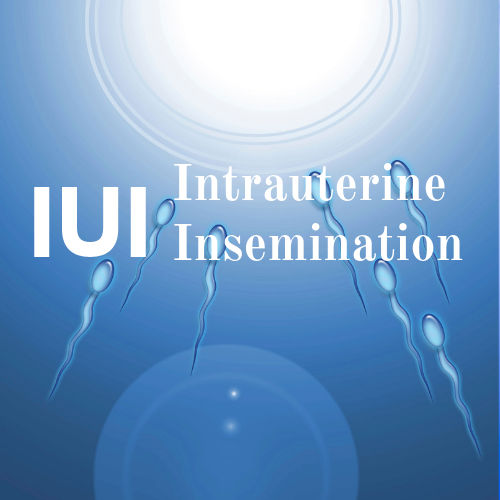
Being a parent is a dream of every couple. Unfortunately, this dream sometimes is not fulfilled due to fertility issues with the couple.
Here, it is important to note that it is not necessary that the cause of lies with a female partner only. There can be the cases where the female partner is fit for conception, however, the male partner is not able to accomplish the process.
To overcome the issue discussed above, IUI treatment is employed.
So, what is IUI?.....Let’s understand it.
Intrauterine insemination (IUI), also known as artificial insemination, is utilized to treat women who have normal and sound fallopian tubes, however, for unknown reasons can't conceive.
This might be because of troubles with intercourse – for instance, a man can't accomplish an erection or has issues of the penis after injury or medical procedure.
Intrauterine insemination may likewise be utilized when semen has been solidified because of a male partner's nonattendance or preceding cancer treatment.
What does all the IUI process incorporate?
IUI treatment includes the infusion of a prepared sperm from the male semen into the woman’ womb around the period of ovulation.
During IUI, the female is closely monitored. When she is ovulating, a sample of semen is taken from the male counterpart to create a sperm test.
Sometimes, fertility medications are recommended to the woman to stimulate the ovulation.
Sperm preparation:
How is IUI treatment performed?
The procedure of IUI includes the addition of a male partner’s semen through the female's cervix and into the uterus at or just before the period of ovulation. This is known as insemination.
Artificial insemination can be performed amid a natural menstrual cycle. However, if the female has an irregular menstrual cycle then IUI can be carried out along with ovulation induction.
IUI treatment is generally painless for the female.
When is IUI recommended?
As we have learned above that IUI is commonly recommended when there are fertility issues with a male counterpart which can either be low sperm count or low sperm motility. Apart from these, in the case of erectile dysfunction also IUI is suggested.
However, sometimes there are cases when IUI is recommended when there are issues with female counterpart such as:
- A threatening cervical condition, including cervical mucus issues.
- Cervical scar tissue from past history which may impact negatively the sperms' capacity to enter the uterus.
Apart from these, in the case of unexplained infertility also IUI can be used.
What is the success rate of IUI treatment?
Talking about the success rate of IUI treatment, basically, it is low. In order for the treatment to be successful, everything must be almost normal with the female counterpart such as:
- The female must ovulate.
- The pelvis of the woman should be pretty much normal.
- The fallopian tubes of the female counterpart and the sperms of the male counterpart should be normal (normal here refers to the normal shape of the sperm).
Also, the point is the success rate of IUI depends on the age of the female.
In case the female is more than 35 years of age it is recommended to go for IVF rather than IUI on the grounds that the success rate is higher.
Generally, IUI has a success rate of roughly 12 per cent per cycle. If pregnancy isn't accomplished after a couple of artificial insemination attempts, the utilization of IVF or ICSI might be considered.
Limitations of IUI
- Women who have extreme complications of the fallopian tubes.
- Women with a history of infections from pelvic diseases.
- Women with endometriosis (ranging from moderate to extreme).
Risks in IUI
Intrauterine insemination (IUI) is a genuine fertility treatment. However, like any other medicinal treatment, the IUI methodology may cause reactions.
Here are some facts about IUI side effects:
- Majority of women undergoing IUI treatment experience almost no discomfort.
- A few women may encounter gentle cramping during IUI treatment.
- Serious reactions, like infections, can happen following IUI, however, these are extremely uncommon.
The catch here is that most IUI side effects are the result of fertility medications taken amid the IUI cycle and not simply because of the IUI treatment.

As discussed above, sometimes fertility drugs are recommended to the female counterpart at the beginning of the IUI treatment. This is done to stimulate the ovulation process. The logic here is more eggs produced will result in more eggs available for insemination i.e. high chances of fertilization which may boost the conception chances.
However, these fertility drugs may cause various IUI side effects including:
- Hot flashes
- Emotional swings and depression
- Sickness, headaches or visual disturbances
- Swollen and sore ovaries, indicating ovarian hyperstimulation disorder (OHSS)
- Pelvic inconvenience, breast tenderness, or swelling
- Ovarian cysts
But these IUI side effects resulted by the use of fertility medications are mostly insignificant and stop once the consumption of fertility drugs is stopped.
However, it is always recommended to let your doctor know about the issues discussed above.
In addition to the above discussed side effects, if you face any discomfort during the IUI treatment, contact best infertility specialist in India to get the treatment at the best cost right away.
Risk of multiple pregnancies
People are usually worried about the risk of multiple pregnancies with IUI treatment.
But let us clear your doubt that the risk of multiple pregnancies (twins, triplets, or more embryos) is generally small. However, if fertility drugs are used along with IUI, the risk of multiple pregnancies is there.
Around 10 per cent of women that take ovulation-stimulating medications and 30 per cent of women that take gonadotropins are at the risk of having multiple pregnancies.
There are certain medical complications associated with multiple pregnancies. Some of them are listed as follows:
- Unexpected labor
- Low birth weight
- Embryo development complications
- Gestational diabetes
- Preeclampsia
Thus, it is recommended to discuss with your doctor about the chances and risks of multiple pregnancies before using fertility drugs for IUI.






